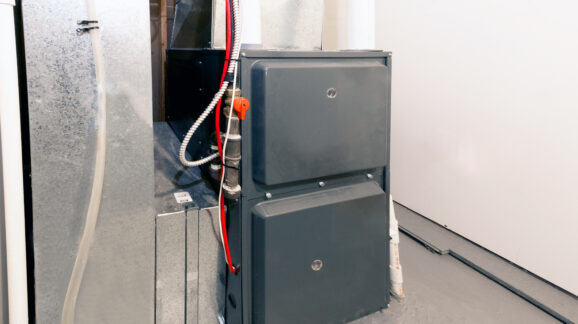A bad court decision on furnace regulations strengthens the case for a legislative fix

Photo Credit: Getty
On November 4, the US Court of Appeals for the District of Columbia Circuit handed down a decision that is bad news for millions of homeowners in need of a new furnace. The only silver lining from American Gas Association et al. v. Dept. of Energy is that it might encourage Congress to step in and address the issue.
The Biden Department of Energy (DOE) finalized a wave of anti-consumer appliance efficiency standards, including one targeting residential gas furnaces. This 2023 rule effectively outlawed non-condensing gas furnaces in favor of condensing models. Condensing gas furnaces are more efficient and can comply with the new standard, but they can create costly installation challenges for millions of homes with venting systems designed for non-condensing models. This mandated transition will be most difficult–and in some cases virtually impossible–for older and space-constrained homes, which are disproportionately owned by low-income homeowners. The American Gas Association cites DOE data estimating that 30 percent of senior households and 26 percent of low-income households would experience net costs from the rule.
The statute authorizing appliance regulations, the Energy Policy and Conservation Act of 1975 (EPCA), contains provisions protecting consumers from overzealous appliance efficiency regulations that deprive them of any desired product characteristics. Specifically, it expressly forbids any standard “likely to result in the unavailability in the United States…of performance characteristics (including reliability), features, sizes, capacities, and volumes that are substantially the same as those generally available in the United States at the time of the Secretary’s finding.” It is hard to imagine any stronger language preserving consumer choice.
Nonetheless, DOE sidestepped this provision by essentially claiming that the specific type of gas furnace is not a protected feature. In the agency’s words, “the technology used to supply heated air or hot water is not a performance-related ‘feature’ that provides a distinct consumer utility under EPCA.”
CEI strongly disagreed with this interpretation. In comments critical of the proposed rule, we said that:
This is an unacceptably narrow reading of the features provision, whose broad language protects every aspect of a product that is of relevance to consumers. Here, the feature at issue is more accurately characterized as the furnace’s compatibility with the home in which it is to be installed – which of course is of great importance to the homeowner.
Unfortunately, a two-judge majority upheld DOE’s interpretation, deferring to the agency and confirming that non-condensing gas furnaces can be eliminated as an option in the regulatory pursuit of efficiency. However, a powerful dissent by Judge Neomi Rao came to the same conclusion as CEI, saying that:
Under the best meaning of EPCA, a “performance characteristic” is a distinctive product attribute that provides utility to the consumer. Non-condensing appliances plainly provide such utility through their unique venting method, which allows for direct integration into many existing exhaust systems without cumbersome and costly retrofits. This integration capability is a “performance characteristic” of noncondensing appliances that EPCA protects from regulatory elimination.
Rao noted that, in light of Loper Bright Enters. v. Raimondo (2024), DOE’s implausibly cramped interpretation of EPCA’s consumer protections should receive no deference, yet that is precisely what the majority opinion did.
DOE’s rule conceded that some homeowners, when faced with the high costs of a new condensing gas furnace (up to $867 more, according to DOE) would choose electric heat instead. CEI’s comments noted that such fuel-switching to electric is part of the climate agenda-inspired antipathy to natural gas and in any event is forbidden under EPCA’s prohibition against fuel-switching. The majority dismissed these concerns, arguing that as long as any gas furnace types are still available, there is no coerced fuel switching. The dissent argued that making gas versions prohibitively expensive and inconvenient for some homeowners amounts to coerced fuel switching and is one more reason DOE’s rule violates the law.
The case will likely be appealed, but the clock is ticking, and manufacturers need to know well ahead of the rule’s 2028 effective date which models are legal to manufacture and sell. In addition, the Trump DOE can and should revisit the regulation to better preserve consumer choice, but that will also take time and be subject to judicial review.
A legislative revocation of the rule would make the most sense. The House is already considering a comprehensive appliance standards reform bill, HR 4626, the “Don’t Mess With My Home Appliances Act.” Adding a new provision to end DOE’s furnace regulation would right this judicial wrong and benefit homeowners.